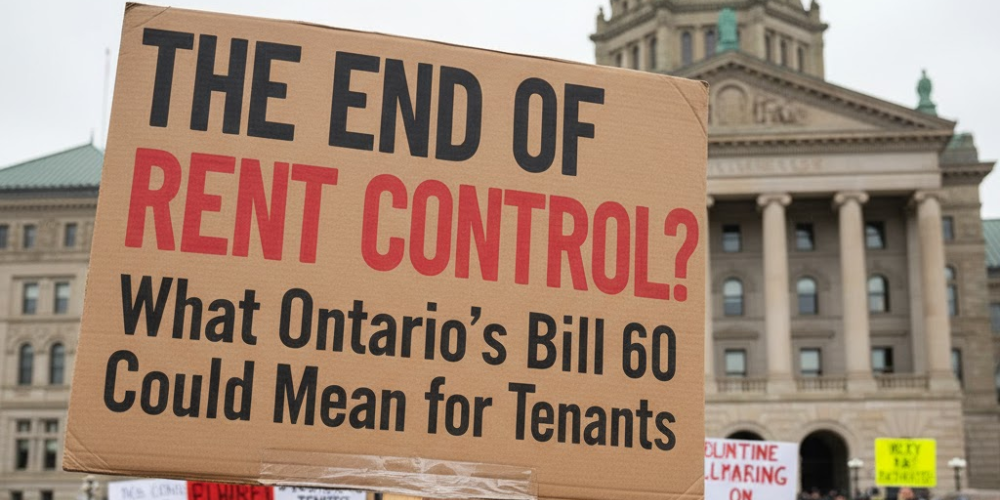The End of Rent Control? What Ontario’s Bill 60 Could Mean for Tenants

Ontario’s Bill 60 could change how renting works allowing leases to truly end after their term, potentially reducing tenant protections and reshaping rent control. Here’s what it means for renters and landlords in 2025.
Your lease might be more temporary than you think.
On October 23rd, Ontario introduced Bill 60, the “Fighting Delays, Building Faster Act.” Buried in this legislation is a proposal that could reshape how renting works in the province.
Fixed Term Leases: The End of “Forever Tenancy”
Right now, when your one year lease ends, it rolls into a month to month tenancy, meaning you can stay as long as you pay rent and follow the rules.
Bill 60 could change that. It would let leases actually expire at the end of their term, meaning your landlord could choose not to renew, no reason needed.
The government says this flexibility could “unlock thousands of rentals” by easing landlord fears of being locked in. Critics say it could make renting feel like permanent uncertainty.
Rent Control Still Exists But Only on Paper
Technically, the 2.5% rent cap for current tenants remains.
But Ontario already has vacancy decontrol, which lets landlords charge any price once a tenant leaves.
Combine that with expiring leases, and rent protection becomes much weaker. Between November 2022 and November 2023, rents for turnover units jumped 35.6% across Ontario and 40.4% in Toronto.
Other Major Changes
Eviction notices could shrink from 14 to 7 days.
Appeals to the Landlord and Tenant Board would drop from 30 to 15 days.
No more one month compensation for evictions if 120 days’ notice is given.
Tenant defences such as poor maintenance claims could be blocked if deadlines are missed.
Who Could Be Most Affected
Long term renters, seniors, and low income tenants stand to lose the most.
Someone paying $1,400 for a Toronto apartment currently renting for $2,500 could face non renewal or market rate renegotiation.
Half of Ontario’s 1.5 million renter households already spend 30% or more of their income on housing. Bill 60 could push that higher.
What’s Next
Bill 60 isn’t law yet. The province plans consultations before moving forward. But the debate is clear:
Should rental housing be built on stability or flexibility?
Disclaimer
This article is for informational purposes only. The information presented is based on publicly available data and third-party reports as listed above. While care has been taken to ensure accuracy at the time of writing, readers are strongly advised to do their own research and consult professional sources for the most accurate, up-to-date information. The author and publisher make no guarantees regarding the completeness or accuracy of the content provided.

